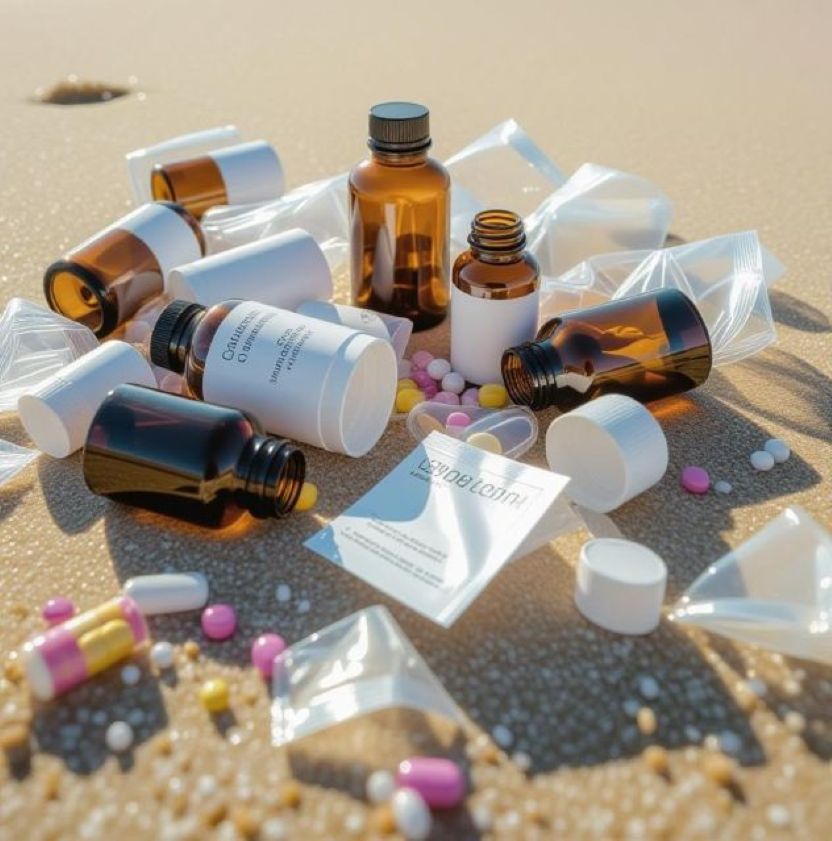7 Eco-Friendly HVAC Upgrades That Can Save Your Home and the Planet

Every year, households account for a large portion of global energy use, and much of that comes from heating and cooling systems. The good news is that sustainable upgrades can cut energy bills while reducing your carbon footprint. Homeowners today are finding that making eco-conscious changes to their HVAC systems benefits both their wallets and the environment.
Modern upgrades offered through professional HVAC service providers like make a huge difference in energy efficiency and indoor comfort. By integrating technology such as smart thermostats, high-efficiency units, and renewable energy options, homeowners can transform their living spaces into greener, smarter environments. Similar principles can be seen in eco-friendly urban development initiatives that focus on long-term sustainability and energy efficiency across entire communities.
1. Smart Thermostats That Learn Your Habits
Smart thermostats are one of the simplest yet most powerful tools for cutting energy waste. These devices learn your daily patterns, adjusting heating and cooling automatically for maximum efficiency. You can monitor your home temperature remotely from your phone, ensuring no energy is wasted when you’re away. Studies show that smart thermostats can reduce annual heating and cooling costs by up to 15 percent, making them a smart investment for any homeowner.
2. High-Efficiency Furnaces and AC Units
Older systems consume more energy and emit more greenhouse gases. Upgrading to high-efficiency furnaces and air conditioners with ENERGY STAR ratings can dramatically improve performance. These modern systems use advanced compressors and variable-speed motors that adjust power according to need, rather than running at full blast all the time. The result is consistent comfort and a smaller environmental footprint.
3. Geothermal Systems as the Future of Home Energy
Geothermal heat pumps take advantage of the earth’s natural temperature stability to heat and cool your home. This technology uses underground pipes to transfer heat from the earth to your home in winter, and reverse the process in summer. While the installation costs may be higher, geothermal systems can lower energy bills by as much as 70 percent compared to traditional systems. Over time, this becomes one of the most sustainable and cost-effective HVAC choices available.
4. Ductless Mini-Splits for Precision Comfort
Ductless mini-split systems allow homeowners to heat or cool individual rooms instead of the entire house. This zoning ability means less energy waste, since you can customize the temperature for each space. Mini-splits are also easier to install and maintain, which further reduces overall resource consumption. They’re perfect for older homes without existing ductwork or for adding climate control to new extensions.
5. Energy Recovery Ventilators (ERVs)
Good indoor air quality doesn’t have to come at the expense of energy efficiency. ERVs exchange stale indoor air with fresh outdoor air while capturing heat and humidity from outgoing air. This process keeps your home ventilated without overloading your heating or cooling system. For households looking to balance comfort and sustainability, ERVs are a must-have upgrade.
6. Regular Maintenance Reduces Waste and Emissions
Even the most efficient HVAC systems lose effectiveness without proper care. Scheduling regular check-ups through an HVAC service ensures that filters are clean, leaks are sealed, and parts are running smoothly. A well-maintained system uses less energy, lasts longer, and releases fewer emissions into the atmosphere. Think of maintenance as preventive medicine for your home’s climate health.
7. Solar-Powered HVAC Systems
Solar energy isn’t just for rooftops anymore, it can now power your entire HVAC system. Solar-assisted air conditioners use photovoltaic panels to generate electricity, reducing reliance on fossil fuels. Pairing solar panels with energy-efficient HVAC technology creates a self-sustaining loop of clean energy that keeps your home comfortable year-round. This is a long-term solution that supports both savings and sustainability.
Living Green Starts at Home
“Sustainability begins with awareness, but it thrives through action.”
Every upgrade you make, no matter how small, contributes to a larger goal of environmental responsibility. Whether you’re switching to a smart thermostat, installing a geothermal system, or booking a professional HVAC service for maintenance, each step helps create a more sustainable living space. By investing in eco-friendly heating and cooling solutions, homeowners can enjoy cleaner air, lower bills, and a healthier planet, all from the comfort of home.


 The vibrant world of cosplay, traditionally known for its elaborate and often resource-intensive creations, is undergoing a significant transformation. A growing movement among cosplayers is prioritizing environmental sustainability, integrating green practices into every stage of costume design and creation. This shift reflects a broader societal awareness of ecological impact, proving that passion for pop culture and environmental stewardship can beautifully coexist. From global conventions to local meetups, the commitment to eco-friendly methods is not just a trend; it’s becoming an integral part of the culture, influencing how enthusiasts approach their craft and interact with their community.
The vibrant world of cosplay, traditionally known for its elaborate and often resource-intensive creations, is undergoing a significant transformation. A growing movement among cosplayers is prioritizing environmental sustainability, integrating green practices into every stage of costume design and creation. This shift reflects a broader societal awareness of ecological impact, proving that passion for pop culture and environmental stewardship can beautifully coexist. From global conventions to local meetups, the commitment to eco-friendly methods is not just a trend; it’s becoming an integral part of the culture, influencing how enthusiasts approach their craft and interact with their community.
 Environmentalists face a daunting challenge in the digital age. The internet is full of information, but not all of it is accurate. For eco-conscious readers, researchers, and advocates, finding credible resources is crucial. Curated platforms act as guiding lights, helping users access authentic articles, government reports, and NGO updates while avoiding misinformation.
Environmentalists face a daunting challenge in the digital age. The internet is full of information, but not all of it is accurate. For eco-conscious readers, researchers, and advocates, finding credible resources is crucial. Curated platforms act as guiding lights, helping users access authentic articles, government reports, and NGO updates while avoiding misinformation.
 Electronic waste, or e-waste, includes discarded electronic devices such as smartphones, laptops, televisions, and batteries. As technology advances, people replace their devices more frequently, leading to an overwhelming amount of waste.
Electronic waste, or e-waste, includes discarded electronic devices such as smartphones, laptops, televisions, and batteries. As technology advances, people replace their devices more frequently, leading to an overwhelming amount of waste. Fencing is often seen as a long-term investment. However, the environmental consequences of certain materials can be quite harmful. Traditional wood fences, for example, come from cutting down trees, contributing to deforestation and affecting local wildlife and ecosystems. Additionally, these wooden fences can require regular maintenance, which involves toxic chemicals like paints and preservatives that are harmful to the environment.
Fencing is often seen as a long-term investment. However, the environmental consequences of certain materials can be quite harmful. Traditional wood fences, for example, come from cutting down trees, contributing to deforestation and affecting local wildlife and ecosystems. Additionally, these wooden fences can require regular maintenance, which involves toxic chemicals like paints and preservatives that are harmful to the environment.












 This gives him the most security when he knows that he does not have to fight for ranking or pack leadership. Life in his pack should be characterized by trust, protection, solidarity and be able to rely on the other. Dogs are like children and you offer them this
This gives him the most security when he knows that he does not have to fight for ranking or pack leadership. Life in his pack should be characterized by trust, protection, solidarity and be able to rely on the other. Dogs are like children and you offer them this 


